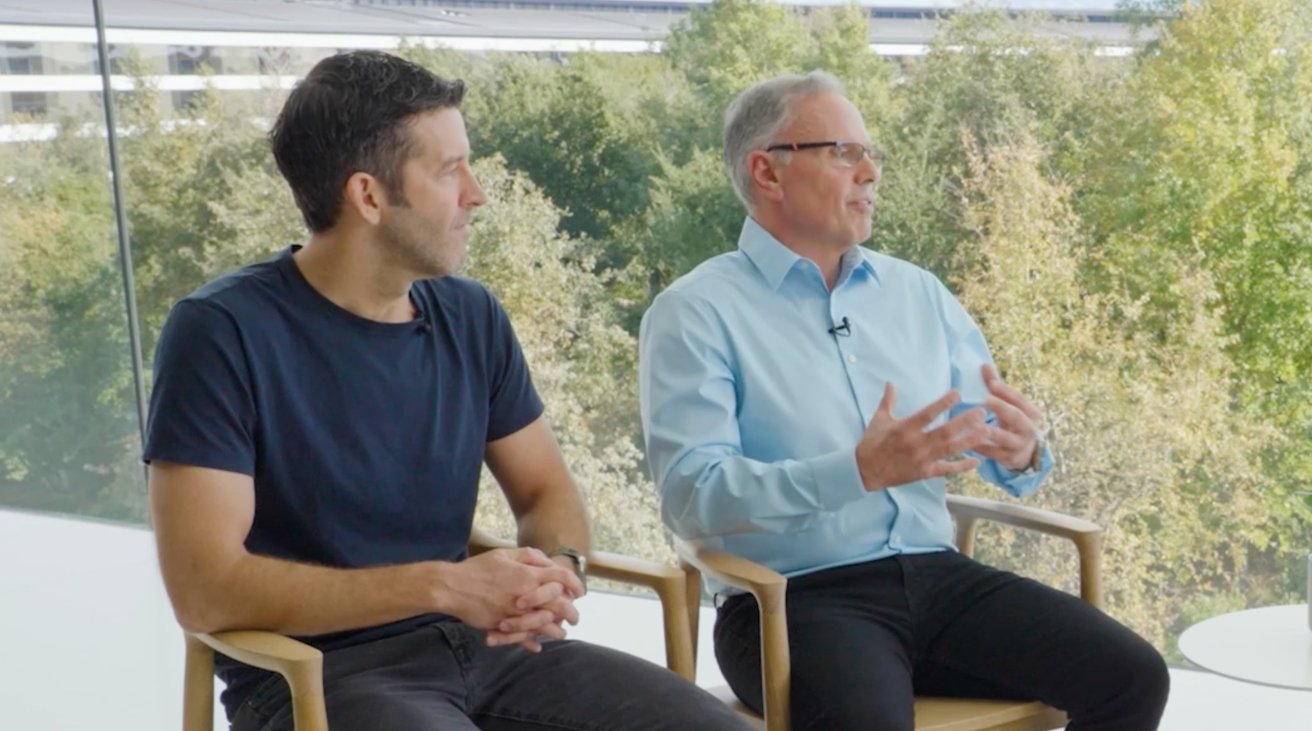Apple's work to bring the design of components in-house is the most "profound change" for the company in the last 20 years, an interview with its hardware chiefs reveals.
In an interview recorded in November and aired on Saturday, Apple SVP of Hardware Technologies Johny Srouji and SVP of Hardware Engineering John Ternus talked to CNBC about Apple's chip business, among other related topics.
The marriage between the two teams, as well as the software team, makes for a unique working relationship, Srouji explains, letting Apple "build integrated products that are fully optimized for the product," with the development starting four years out from release.
On bringing its designs of chips and components in-house, Ternus starts by talking about how Apple was "using technologies from other companies" for its products, and that Apple was "building the product around that."
While Apple did have a design team that made "incredible" products, "they were constrained by what was available, and I think one of the most, if not the most profound change at Apple in our products over the last 20 years is now how we do so many of these technologies in-house," Ternus said, and "top of the list was our silicon."
When asked if the typical Apple customer knows where the chips come from, and if they care, Srouji states "they know, and I believe they truly care, and here's why. We're not a chip company, but we have a very, I think best in class, world-class chip team, and the fact that we're working together and we're building that silicon exclusively for our products gives my designers the freedom to design for exactly those."
All accomplished "without compromising design, without compromising focus."
TSMC and diversification
With the introduction of 3-nanometer chips in Apple products, the question was raised about production capacity, and if that was an issue, Srouji said he couldn't answer much on the topic, since it was really a question for the foundries. Mentioning its work with chip partner TSMC, Srouji offers "we believe they have scale for our volumes, and capability for our volumes.
Asked about whether there's any urgency from having chip production focused in Japan, Srouji offers Apple "always want to have a diversified supply. Asia, Europe, and the U.S., which is why I think TSMC building fabs in Arizona is great," and that other foundries are doing the same diversification.
"We do rely on TSMC for a good part of our internal chips, and when I think about it, it's actually very complicated," Srouji continued. "Those transistor technologies are very advanced and complicated, but it is still down to a few principles."
"We always want to deliver and build the best chips on the planet, for the best products, so that's our North Star." This, Johny added, means requiring access to the best tools and technology, as well as a partner where they have aligning objectives, reliability, and can scale with Apple's needs.
While Apple has a long relationship with TSMC, Apple is always "exploring options," and is always open to other foundries if they are up to Apple's standards and can handle its requirements. "I think there is goodness to diversify," Srouji believes, but that Apple should always go to the principle of whether doing so can meet its needs.
On geopolitical tensions that could affect production in Taiwan, Srouji states that he cannot disclose future plans, but Apple will "always look ahead, we have strategic bets, and we are very careful with our planning."
 Malcolm Owen
Malcolm Owen







-m.jpg)






 Wesley Hilliard
Wesley Hilliard

 Andrew Orr
Andrew Orr
 William Gallagher
William Gallagher
 Sponsored Content
Sponsored Content
 Christine McKee
Christine McKee

 Thomas Sibilly
Thomas Sibilly





19 Comments
The incredible vertical alignment that Apple is able to achieve is going to lead to superior products, and the "It just works" principal for years to come. We should feel lucky to live in such an age
The great thing about Apple is the long term vision and stop on a dime preparedness.